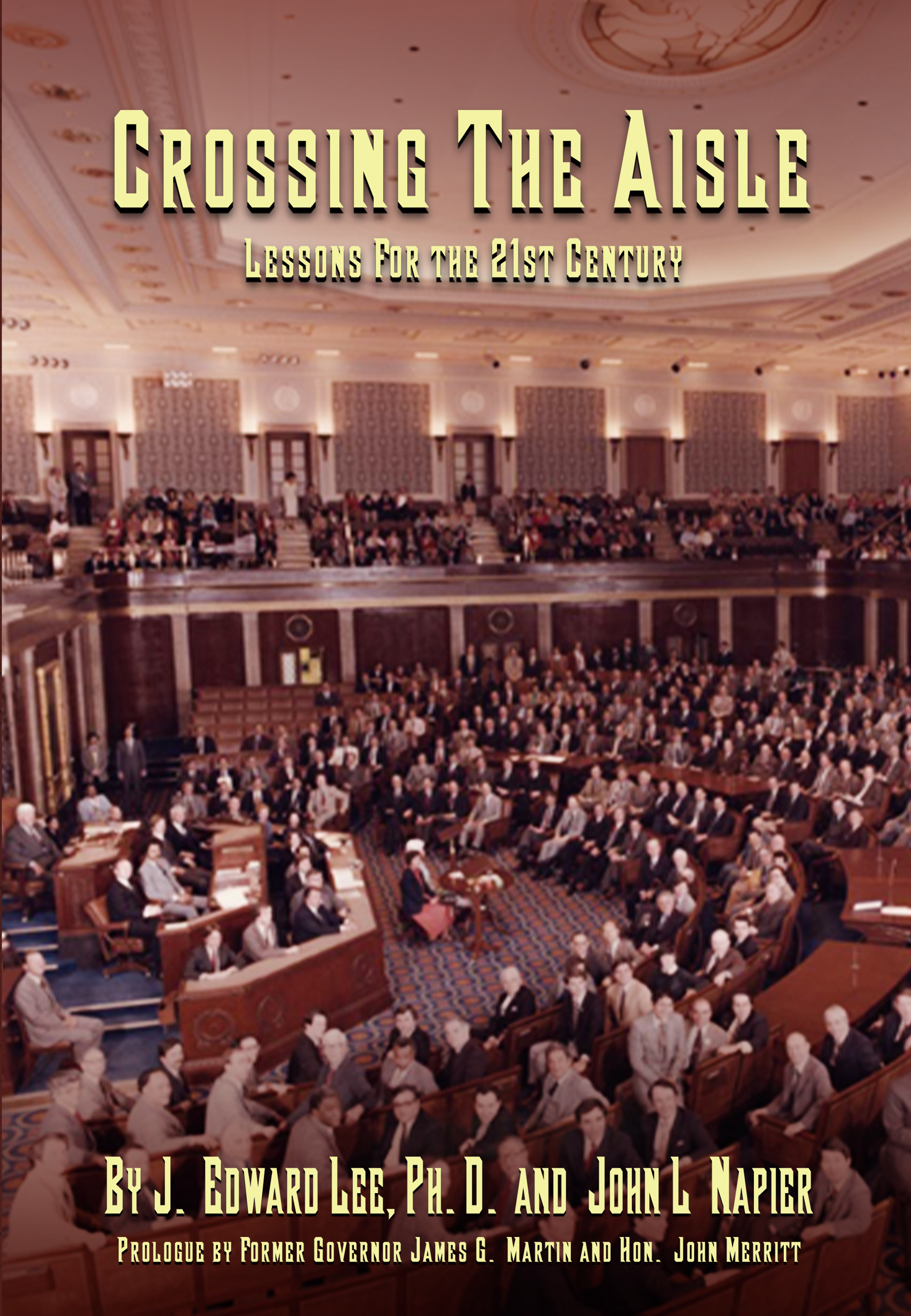In the thought-provoking new book Crossing The Aisle: Lessons For The 21st Century authors J. Edward Lee, a noted Winthrop University history professor and biographer, and John L. Napier, a former Member of Congress and a Federal Judge, provide a masterful exploration of the art of bipartisan leadership, with a special focus on iconic figures such as Strom Thurmond, Carroll Campbell, Jim Martin, Charlie Rose, other influential members of Congress, and their innovative staffs. Published by Hemingway Publishers, this timely work released on the eve of the 2024 election, offers invaluable insights into the strategies and principles that have united lawmakers across the political spectrum throughout our history to achieve progress in even the most divisive times.
Drawing from decades of historical research and personal experience, Lee and Napier bring to life the contributions of political trailblazers who exemplified the power of cooperation, comity, and compromise.
Strom Thurmond and Fritz Hollings: Masters Of Working Together In Opposite Parties
Strom Thurmond, the longtime U.S. Senator from South Carolina, emerges as a central figure in Crossing The Aisle. Known for his unparalleled political longevity, Thurmond transitioned from being a Dixiecrat presidential candidate in 1948 to a pivotal Republican leader, nationalized in 1968, who worked across partisan lines on key issues such as defense, agriculture, and economic development.
The book highlights Thurmond’s ability to mentor a generation of political leaders, including Harry Dent, Fred Buzhardt, Judge Billy Wilkins, Lee Atwater, Henry McMaster, and John Napier himself, who served as his legal counsel.
The book examines how Thurmond and his Democratic Party colleague Fritz Hollings influenced the national political arena from their shared perch in South Carolina.
“Strom Thurmond’s and Fritz Hollings careers are testaments to the evolution of political leadership and the power of personal relationships in policymaking,” says co-author John L. Napier. “They understood that loyalty, pragmatism, and mutual respect were the foundations of effective governance.”
Thurmond’s office, affectionately referred to by Lee and Napier as “Thurmond’s School,” trained many influential leaders who carried forward his legacy of effective public service into the 21st century.
Carroll Campbell, Jim Martin, and the New South
The book also examines the transformative impact of Governor Carroll Campbell, who played a key role in modernizing South Carolina’s economy after serving as a member of Congress. As a two-term governor, Campbell demonstrated the value of bipartisanship in securing major economic wins for the state, such as attracting BMW’s first North American plant to the Upstate.
Similarly, Jim Martin represented the New South state of North Carolina in the Congress for a decade and then became governor of his home state, determined to foster a vibrant two-party political system in North Carolina, built on pragmatism, drawing upon his skills learned as a former chemistry professor at Davidson College as well as his service as a member of the House of Representatives.
Key Themes and Other Giants
The book further explores the roles of other influential lawmakers, including:
- Charlie Rose (D-NC): A Democratic Congressman who joined forces with Republican John L. Napier during the 1980s Tobacco Wars, Rose exemplifies how shared regional interests can transcend party loyalty and state boundaries to achieve lasting public policy victories. Rose chaired the House Administration Committee and was a key member of the Intelligence Committee.
- John Merritt: Chief of Staff for Representative Rose and later for North Carolina Governor Mike Easley, Merritt, co-author of the prologue, demonstrates the role played by staff members in the development of substantive public policy. During the Tobacco Wars, he managed the War Room which resulted in saving the tobacco stabilization program. He serves as a valuable resource for understanding the interaction of business and state and federal politics. For example, he was very instrumental in the formation of the Golden Leaf Foundation which funds public needs in North Carolina that government cannot reach.
- Ronald Reagan: The authors examine Reagan’s transformative leadership during the 1980s and his ability to unite factions within his party and work with Democrats to enact groundbreaking legislation in both domestic and foreign affairs. The president demonstrated competent defense policy formulation with his Strategic Defense Initiative (Star Wars) during the Cold War with the Soviet Union.
Through vivid anecdotes and behind-the-scenes accounts, Crossing The Aisle reveals the personal relationships, strategic compromises, and shared visions that defined these leaders’ careers.
The book offers more than just a historical retrospective—it is a plea for today’s leaders to embrace the spirit of bipartisanship embodied by figures like Thurmond, Hollings, Martin, Campbell, and Rose. With actionable lessons and practical insights, the authors argue that the challenges of the 21st century demand a renewed commitment to the unity and cooperation which has historically made the Republic strong.
“From Strom Thurmond’s mentorship to the alliances forged during the Reagan Revolution, this book underscores that America’s greatest achievements have come when leaders put the common good above partisanship,” says author J. Edward Lee.
Crossing The Aisle: Lessons For The 21st Century is available now in hardcover, paperback, and e-book formats on major book distribution platforms.
Media Contact
Company Name: Hemingway Publishers
Contact Person: J. Edward Lee & John L. Napier
City: York
State: South Carolina
Country: United States
Website: https://hemingwaypublishers.com/






